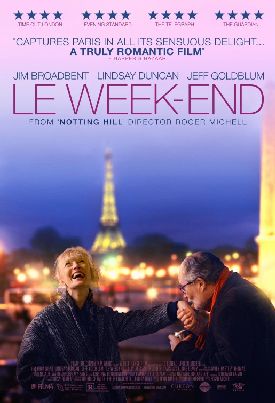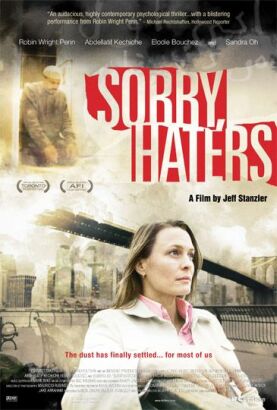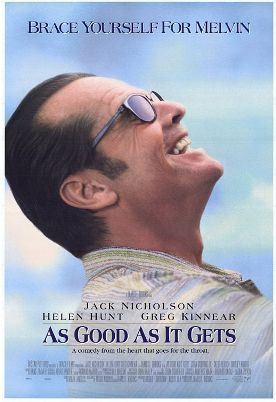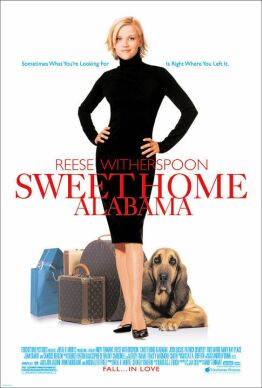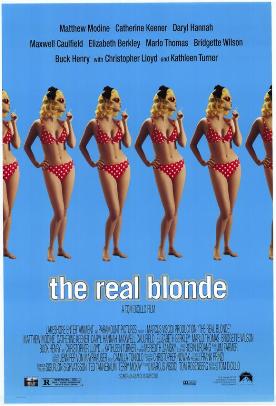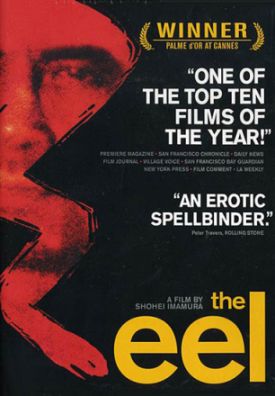Le Week-End
You can’t not love and hate the same person,” says Nick (Jim Broadbent) to Meg (Lindsay Duncan) — “usually in the space of five minutes, in my experience.” It’s the kind of writerly line — the writer in this case being Hanif Kureishi — that looks good on the page but proves a real bear the moment you try to illustrate it dramatically. In the case of Le Week-End, directed by Roger Michel (who also collaborated with Mr Kureishi on The Mother and Venus, both about mismatched sexual partners), Mr Kureishi has made it even more difficult for himself by putting his characters through the kind of mutually self-lacerating dialogue that makes Nick and Meg reminiscent of George and Martha in Edward Albee’s Who’s Afraid of Virginia Woolf? But sooner or later there comes out of nowhere — spoiler alert! — a plainly contrived peripeteia, after which love may be supposed to come on shift to take over for hate. It’s supposed to be a comedy, after all.
At the end you may find yourself asking, as I did, what was that about? The answer, I guess, is an excuse for an outpouring of liberal, or rather leftie, angst and disappointment at how the world has turned out for people of a certain age — Mr Broadbent and Miss Duncan are both elder baby boomers — compared with what they expected from it as young would-be revolutionaries in the 1960s. Hence the setting in Paris, which is where Nick and Meg spent their honeymoon and presumably imbibed some of the enthusiasm of the soixante-huitards — he as a self-proclaimed anarchist and minor-league academic philosopher and she as a member of “the feminist Taliban” (at least according to her now-disgruntled husband). “I was brilliant at school, a star at university; I’m amazed at how mediocre I have turned out to be,” says morose Nick early on in the proceedings. You can see where this is going.
Most of all, however, Nick is feeling let down by Meg, both on account of their lack of physical intimacy and because of her sharp-tongued rebukes at seemingly every turn — notably when she refuses to sleep in the Parisian hotel he has booked for them, the hotel of their honeymoon, on account of its beige decor and demands that they go instead to the Plaza, which they clearly cannot afford. There they continue their alternately tender and waspish banter towards each other before enjoying what Nick lugubriously calls a “last supper” at a restaurant they also can’t afford — and running out on the bill. Once an anarchist, always an anarchist, I guess, though Meg, the former feminist Taliban, is the first to come up with the idea of their doing a runner, as the English say.
Back on the street and exhilarated by their escape, they meet by chance the foil to their marital misery in the form of Nick’s old friend Morgan (Jeff Goldblum), an American academic superstar who has recently left his wife and family in America and moved to Paris, where he is living with a much younger French girl, Eve (Judith Davis), now pregnant with his child. Although Morgan is self-deprecating about his change of family and nation and claims that Eve “is going to eat me alive,” she is clearly devoted to him, as are the glittering array of friends he has invited to his lavish Parisian apartment on the following evening to celebrate his latest book. On the spot, he invites Nick and Meg to join them at the party where, it is already clear, they will be very much out of place.
But Morgan and Nick had been undergraduates at Cambridge together and joined together in the student demonstrations and strikes of the period. Now Morgan pays handsome tribute to his old friend, even professing to have asked himself in moments of doubt and perplexity: “What would Nick Burrows do? What would Nick Burrows say now?” He claims to regard himself as a sell-out and merely lucky for all the riches and honors that have come his way, while Nick represents to him the flinty intellectual integrity he wishes he still had, if not the poverty that has come with it. This is of course too much for Nick, who insists in a toe-curlingly embarrassing speech at his friend’s celebratory board that he is deluded in thinking there could be anything admirable about him or, as he sees it, his ruined life and marriage.
“Why doesn’t anyone want my company?” he had complained earlier to Meg. Uh, Nick? I think I can help you with that. There is just the briefest of flashes of the Nick that Morgan apparently imagines him to be when he asks his newly married friend, confidentially, why he would put himself through all that again — “all that” including parenthood, at which Nick also imagines himself to have failed, as well as matrimony. We have recently heard from Meg of her desire for a new beginning of a different kind. She says she wants to “play the piano, learn Italian, do the tango” and leaves it very much up in the air as to whether or not such things wouldn’t be better undertaken without the encumbrance of old misery Nick. He thus seems genuinely interested in Morgan’s reply.
“Because I’m vain,” Morgan answers, perhaps even honestly. He adores being adored.
Nick then says: “I don’t share your delusion — that by giving up on someone you’re free.” There speaks the philosopher whom Morgan claims to find so well worth listening to. But for the rest of the movie he’s too busy moaning about what a hard life he has to be very interesting, either to his wife or to us.
Discover more from James Bowman
Subscribe to get the latest posts to your email.

